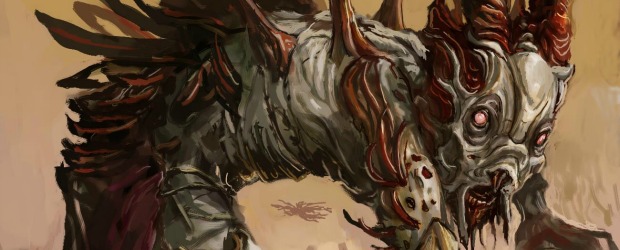You have no items in your cart. Want to get some nice things?
Go shopping
The Millennium Bug was hungry again; Skylark could feel it in her stomach. They were linked, the Bug and the girl. Last night’s shopping sat still-bagged on the table. Quietly, she took food from there: bread, tinned peaches and other things she knew it liked to eat. Her parents were in the living room, arguing, TV turned up loud to mask the sound. She hated them. They were like pet dogs – big, unwieldy, useless. They thought she was asleep.
She went out the kitchen window onto the fire escape. The cold picked at her, made her breath feel brittle. Her footsteps rang hollowly against the metal stairs. As she reached the roof the Bug unspooled itself from the shadows of a vent stack. It was getting easier and easier to make it come. In the beginning she’d had to strain for it, stretching out on the tiptoes of her mind. Now she could call it before she’d even reached the roof and it would be there waiting. She liked that. With every day that passed she was only getting stronger. [private]
She gave it the peaches and watched it struggle with the ring pull, blunt fingers scrabbling against metal. She took the tin back and opened it herself. This made her feel like a mother.
“What do you say?”
Thank you, Sky. Tonight the Bug’s voice was a deep and throaty rumble. It changed often. There were a thousand voices in the Bug, and each day a different one seemed to rise to prominence, shifting like the Bug’s massive body shifted, liquid and inky. The only thing about it that was certain were the eyes – two molten rocks in a pool of pitch.
“Be quick,” she said. “I have a job for you tonight.”
Skylark hated to watch things eat, and so she turned her back and went to the edge of the roof. There was no barrier, only a low concrete lip before the drop. She perched on it, feet dangling over nothingness. From up here you could see the world below in surprising detail, everything picked out orange by the streetlamps. Small people and small houses and small cars. Behind her the Bug ate greedily, small coos of pleasure escaping as it crammed the peaches into its mouth.
It had been smaller when it came the first time, but she’d fattened it up. Taught it how to form words with the loose hole of its mouth. How big would it grow, she wondered, if she kept on feeding it? The Bug was a slowly-unfurling mystery to her – thousands of years old and yet new and impossible and soft and hard and hers. All hers. Like a baby, but precious and powerful.
The tin tinked off the hard surface of the roof. Skylark didn’t turn around, but spread her arms and waited. The Bug made no sound when it moved, but she felt its arms a second before they enfolded her – like the static she sometimes felt hovering in front of screens. She shut her eyes as she was lifted up into the cold rushing air of the night, away from the roof and the ground and the world, rising in a series of slow lurches. She only looked again when the wingbeats stopped and she knew they were gliding.
At night the city was nothing but lights. At first look they seemed random, scattered like spilled glitter all the way to the horizon – but, when she looked for long enough, she saw that there was an order to things. Roads, like arteries, swayed and pulsed with moving light. Tracts of darkness marked parkland nestled in amongst the city. Up ahead a clutch of towers speared skywards from the very centre of it all, glittering and baleful.
The first time she flew with the Bug, it took her to those towers. On the hundredth-storey roof of the tallest one the wind was constant, the air so cold it cut. A red light blinked patiently from the tip of the skyscraper’s crowning aerial – a warning to aircraft that bathed everything in a bloody and surreal light. Skylark liked it up there. You could be alone at the top of the tower, the highest point for miles around. Up there, nobody could ever hope to touch you.
Today she directed the Bug away from the glittering centre, and had it swoop low enough that she could recognise buildings. There was her school, sprawling and ugly with the empty black oblong of the playing fields beside it. There was the park; a cluster of orange cigarette tips hovered by the adventure playground. She was low enough to be seen, she supposed, but the possibility did not worry her. People so rarely looked up.
When they reached the maze of suburban streets on the outskirts of the city she tugged on its arm and told it to land. There was nobody to see them touch down in the middle of a lampless side road. Gravity returned, the shock of it like waking from a dream. They parted – Skylark glowing intimately with the Bug’s residual heat – and started to walk.
“There’s a boy at school,” she said. She spoke slowly, allowing time for her thoughts to assemble themselves. Her voice rang in the heavy silence of the street, as if she were speaking into a tin cup. “His name is Dylan. He has a moped. Takes me places sometimes. When I need to go to town he takes me. Thinks he’s doing me favours. Thinks if he does it enough I might let him fuck me.”
Fuck? said the Bug, but she ignored it. Often it would echo her, as if trying out unfamiliar sounds for itself. Skylark had practiced that particular word too, of course; there was something powerful, at her age, in being a girl who could swear as easily as saying her own name.
“I told him never to call me,” she went on. “He has my number because I have to call him to come and pick me up, but I told him not to use it. And then today… Today, he called while I was in the shower. And my mother picked up.”
Mother, it echoed. Once it had started a game it liked to go on playing.
“I didn’t hear the phone. My mother picked up. She was speaking to him when I came out of the shower, saying all these stupid things.” She affected a high, ridiculous voice. “Oh, are you her friend? She’s so secretive. It’s so nice to know that she’s got friends.” Skylark paused, levelled her breathing, unclenched fists, made herself calm and smooth and imperturbable once more. They emerged onto another silent street lined with terraced houses. A fox froze in the road ahead, poised to run, lamplight eyes turned towards them. In the brief moment before it bolted, Skylark wondered what it saw.
The boy’s house was the last on the row. His moped gleamed garishly in the front garden. Skylark propped herself on the wall, and the Bug enclosed her in its lazy warmth. She liked the feeling of her skin against its skin – it was not nearly as oppressive as the hugs her mother insisted, occasionally, on giving her. The Bug felt sterile, smooth as the back of a telephone, and yet very definitely alive. Static fizzed beneath its outer layer. The night too was sensuously perfect, slack and pressureless as in the centre of a storm.
“He’s inside,” she said, and pointed. “That’s his window. He’ll be asleep by now.”
The Bug nodded – a human gesture which she had taught it. Inside.
“I want you to go inside,” said Skylark. “Find him. Then do what you did before, with that cat we found. Do that to him.”
She had been expecting the Bug to resist at least a little. In the early days it had defied her often. When it didn’t like an order she had given it would make itself slow and stupid, and pretend to misunderstand. This time, however, it flowed from her and snaked in through the letterbox without question, dissolving like smoke.
Alone, she stepped over the low wall and walked up to the moped. Its surface – shiny and free of dirt – reflected the streetlights. He must have washed it that day. The grass and weeds around its wheels were trampled down. The first time she had ridden on the back of it she had found it thrilling – that had been before the Bug, of course. Now it looked juvenile and silly. Those shiny colours, those reflective parts. It was nothing but a show of power it didn’t really have.
She put a trainer against it and waited there, poised oddly. She thought of the Bug, and the new millennium coming, sixty days from now. She had heard about what would happen, the chaos that would come, the empty age, the recession. The world would dim to darkness, while people crouched in caves and cooked on campfires, scratching an existence in the mud like beasts. All apart from her and the Bug. She would be a queen, a ruler, beautiful and dignified.
She crooked her leg and pushed, and with slow grace the moped toppled over. It landed with a thump rather than the crash she had been hoping for. Nothing dramatic. No alarm sounding, no lights in the house flickering on. She stood there staring, disappointed.
The Bug returned to her soundlessly. She felt the static of it before she registered its presence. “Done?” she said.
Done, said the Bug.
“Did it hurt him? Did he know it was happening?”
No.
She thought about this. “Next time,” she said, “make sure they’re awake.”
Yes, Sky.
She asked the Bug once how it killed things and it told her that it went inside of them and stopped the heart. She liked the sound of that – it was almost romantic, like something from a fairytale. She’d asked the Bug if it could teach her to do the same thing and it had said no, it could not. No matter. When the end came she would have the Bug, and that would be plenty.
“Wait here,” she said. She squirrelled in her pocket, thinking for a moment that she might have forgotten the little package which she had so carefully prepared earlier that evening – but no, there it was. She went to the door, sank to her knees in front of the letterbox and for a few minutes she worked, set things to other things, then rose and returned to the Bug.
Sky, said the Bug.
“Let’s go,” said Skylark. “Quickly.” She spread her arms, and it held her, and the ground fell away from beneath her feet, the house and the street and the city soon becoming small. They were miles away by the time the smoke started rising. [/private]

About Krishan Coupland
Krishan Coupland lives in Norwich, and studies Creative Writing at the University of East Anglia. His writing has appeared in Voiceworks, Aesthetica, Ambit and Fractured West. He won the Manchester Fiction Prize in 2011, and in his spare time he edits a literary magazine. More of his work can be found at www.krishancoupland.co.uk.




